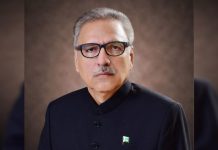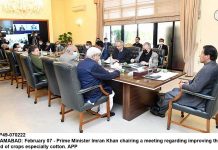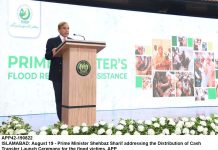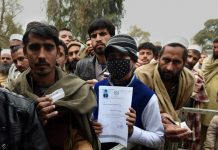LAHORE: Pakistan-India legislators and public officials expressed concerns over increasing water scarcity on both sides of border. While focused on sharing of experiences and good practices on “Effective Agriculture and Livestock Practices, policies between legislators and experts” belonging to Indian States of Punjab, Haryana and Pakistan’s province of Punjab.
This was shared in the 4th round of the Pakistan-India Legislators and Public Officials Dialogue on “Sharing of Experiences on Governance and Democracy” was facilitated by Pakistan Institute of Legislative Development and Transparency (PILDAT). Participants acknowledged and appreciated the facilitation of the dialogue by PILDAT by bringing together legislators and subject experts from India and Pakistan at a time of unusual strain in relations between the countries.
The dialogue once again underscored the critical requirement of continuing talks and avenues of interaction on sharing of experiences regarding democratic governance between Pakistan and India. Participating legislators and experts termed the sharing of experiences as a necessity to reforming of policies and practices in the two countries as both countries face similar issues and can find workable solutions through good practices adopted by each other.
In the first session of the dialogue focusing on sharing of agricultural practices from Indian States of Punjab and Haryana and Pakistani Punjab, experts highlighted the need to approach agricultural policies and practices holistically to benefit both consumers and farmers. Achieving food security for India and Pakistan are the key tenets of national policies of both countries. Profitability to the farmer must be a key consideration of reforms in policies as food security cannot be approached at the cost of keeping farmers poor.
Despite the centrality of agriculture to the economy of both countries, experts lamented agriculture and related policy reforms do not get required governmental and legislative focus in both countries. While both countries face similar challenges to varying degrees, experts strongly urged legislators from Pakistan and India to play their role by policy input on agriculture as well as by review of existing policies and initiatives by governments through oversight mechanisms available to them.
They also urged that water scarcity faced by both countries poses a far more serious threat than policy makers in both countries realise. Urgent policy and legislative focus, therefore, must be placed on introducing effective water conservation strategies in the two countries. Participants also urged PILDAT to facilitate cooperation on agricultural research, extension, education, mechanisation, post-harvest management and livestock sectors by forging institutional arrangements among the relevant universities and institutions in both the countries. The disconnect between agricultural research carried out in agricultural universities and the changing requirements of a farmer were highlighted as another key challenge in both countries.
Meanwhile, the issue is starker in Pakistan than India. Experts believe that the creation of effective dissemination of agricultural research and practices of the farmer on the ground must be a key priority of the legislators and governments. The participants also highlighted the need for learning from each other in both countries, offering that sharing of agricultural research centres and regular facilitation of kissan melas, educational linkages and dialogue forums and media interfaces must be promoted by legislators in their respective legislatures in India and Pakistan.










.jpg)


